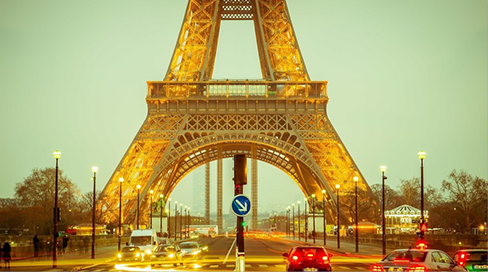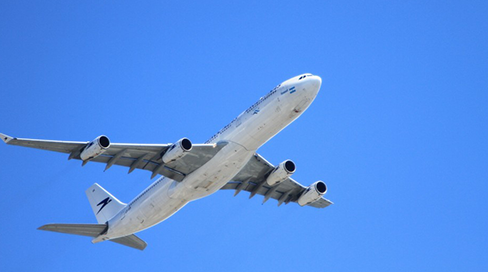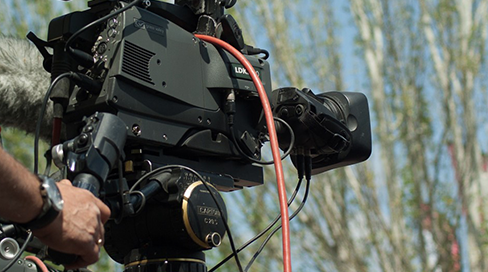As with most things in life, when it comes to filming abroad, preparation is the key. Here are a few things that you should prepare before you even book flights or accommodation
What exactly does the job entail? If you are a freelance filmmaker who has been offered an opportunity abroad, it's important to clarify exactly what your client is looking for. If you work for a production company, make sure you and the rest of the crew are all on the same page before any work begins.
If you have a say in choosing the filming location, be sure to check which countries and regions offer tax incentives before setting the itinerary. The United States and Canada are two destinations known both for their geo graphic diversity and their generous tax breaks in key states and cities, but many other countries across the globe are exploring ways of enticing production companies to use their dramatic scenery as the backdrop for their next film or commercial with benefits ranging from cash-back rebates to discounted airfare.
Another great resource to keep in mind in the planning stages is, film commissions serves as an excellent point of contact with an international location and can help connect you with local crew and talent as well as providing accurate, up-to-date information about filming permits and all other requirements and guidelines. The Association of Film Commissioners International (AFCI) can help pinpoint the closest film commission to facilitate your next foreign location shoot.


Currently, if you're travelling within the EU you won't need a visa (outside the EU you may need a visa), but you will likely need varioust permits for the country you are visiting, and you will most definitely need a valid passport! Some of the paperwork you will need to fill out and obtain includes the following:
Filming permit: It will be in the native language of the country, so you’ll also need a filming permit translation so that you can fully understand the requirements and restrictions placed on you by the local government. The process of applying for a permit will vary depending on the location, and may sometimes include a fee which will need to be factored into your budget.
Release forms: When filming individuals, whether in your native country or abroad, it is necessary to have release forms or waivers in place stating that they legally consent to the release of the footage in which they feature. The only complication of filming abroad is the need for a release form translation so that both parties are fully clear on the agreement.
Music release/reference form: You’ll need one of these to ensure that you are legally allowed to release music composed by another individual if it is included in your production.
Risk assessment: Whether you’re filming at home or abroad, a risk assessment is a must. However, when filming in another country it is particularly important as you will need to identify any and all things that could pose a hazard to any people or equipment involved in the filming process.
Crew contact list: Filming on location is usually pretty straightforward and safe, but it’s best to prepare for the worst case scenario. Draw up a list beforehand of who will be attending, what their contact details are, and their next of kin in case of emergency
Carnet: An ATA carnet is a document that allows you to take your filming equipment in and out of 75 different countries more easily. It’s something that you have to pay for each year, but if you regularly film abroad they can take the hassle out of getting your equipment through customs. It’s a bit like having a passport for your gear; without one you’d have to declare the
Insurance: It should go without saying that you should insure your equipment (and yourselves) against any possible eventuality on your travels. Don’t scrimp by going for a super cheap insurance premium; take some time to look into what the policy covers and purchase the best insurance you can afford for your needs.
Once you’ve made the necessary preparations as detailed above, and have the required paperwork in place, you can move on to the more logistical side of filming abroad:
All productions have a strict budget, so it’s not advisable to blow your travel budget on first class flights. The easiest way to get the most from your money is to book your flights as far in advance as you can. The earlier you book them, the cheaper the seats will be, and the more likely you are to find flight times that suit your needs.
Leaving the booking of your flights to the last minute may mean that all the direct flights are booked up, meaning that you may have to change once or twice and kill time in airports in order to reach your destination. Also, when changing flights like this, your luggage needs to be handled more often, thus increasing the risk of your equipment potentially becoming damaged.
If you do have to wait until the last minute to book domestic flights within a country, check to see if in-country purchases are cheaper than buying from abroad. Sometimes logging into an airline’s website locally brings prices down significantly. Also, round-trip tickets are usually more cost-efficient than one-way flights.
Most airlines allow baggage of up to 20kg per passenger, which is fine for the clothing and personal items you would normally take abroad with you if you were going on holiday or a business trip. However, you’ll usually find that the excess baggage generated by your filming equipment incurs quite a hefty charge.
Check with the airline before you book, as you’ll need to factor this information into your plans. One way that you can combat excess baggage charges is to assess your equipment needs and leave behind anything that is non-essential in order to save weight. It’s always worth calling and speaking to the airline about your requirements and enquiring as to whether they can offer you a reduced rate or not


Once you know how many of the production crew will be travelling, you can assess your accommodation needs. If you’re only filming in one location or one area, try to find a hotel or villa as close as possible to that location in order to keep your travel expenses down. If you’ll be filming in a variety of locations, ensure that you book accommodation which is on a good transport route to allow you to get to the location easily each day.
It’s also a good idea to establish a personal relationship with one or more staff members at each lodging accommodation beforehand or once you arrive in case you need to make special requests such as baggage/equipment storage or adjusted meal times to work around your shooting schedule.
Before you arrive on location, hire a local fixer to make your trip run a lot more smoothly. The fixer will have knowledge of the local area to help you navigate the land and any cultural differences that you may come up against. They will also have knowledge of filming in their country, and can help you to ensure all of your paperwork and permits are up to date and legitimate.
A fixer is there to facilitate your needs, whether that is driving you to different locations, arranging lunch and craft services for you and your crew, or providing location shoot translation to ensure that nothing gets lost in communication difficulties
When it comes to filming abroad there’s an awful lot of equipment that you’ll need to take with you. Of course, the airline’s baggage allowance may dictate exactly how much stuff you can take with you, but there are some essentials:
You have two options when it comes to recording equipment: find a way to bring your own gear, or hire items from a production company in the destination country. Both options have their pros and cons. You’re used to your own equipment and the way it works, meaning you’re likely to get the best results with it. However, hiring equipment means you don’t have to take as much stuff through customs and also keeps your baggage charges down.
It may be worth doing a mixture of both. For example, take your own cameras, lenses, hard drives, memory cards, computer equipment etc. Items such as tripods, lighting, microphones, and boom poles can be hired easily in most cases. Once you’ve put your essential kit together, you’ll need a kit list translation so that the fixer in the host country can source your rental equipment for you.


Once you know how many of the production crew will be travelling, you can assess your accommodation needs. If you’re only filming in one location or one area, try to find a hotel or villa as close as possible to that location in order to keep your travel expenses down. If you’ll be filming in a variety of locations, ensure that you book accommodation which is on a good transport route to allow you to get to the location easily each da
It’s also a good idea to establish a personal relationship with one or more staff members at each lodging accommodation beforehand or once you arrive in case you need to make special requests such as baggage/equipment storage or adjusted meal times to work around your shooting schedule.
Before you arrive on location, hire a local fixer to make your trip run a lot more smoothly. The fixer will have knowledge of the local area to help you navigate the land and any cultural differences that you may come up against. They will also have knowledge of filming in their country, and can help you to ensure all of your paperwork and permits are up to date and legitimate.
A fixer is there to facilitate your needs, whether that is driving you to different locations, arranging lunch and craft services for you and your crew, or providing location shoot translation to ensure that nothing gets lost in communication difficulties
If you’ve taken the advice and information above on board then you’re pretty much sorted for your filming trip abroad. However, there are just a few other things to consider before you begin your journey:
Make sure to leave some room in your budget for unforeseen expenses. Things such as paying road tolls, congestion charges, and tipping can start to mount up unexpectedly. It’s also a good idea to provisionally allocate part of your budget for things such as emergency accommodation and transport costs, replacement or repair of lost or damaged equipment, and potential medical bills if a crew member gets sick.
Different countries have different interpretations of meal breaks, so if you’re working with local crew you will need to take this into account. In the US, for example, lunch is typically a sandwich in the vehicle on your way to the next location; whilst in some European and Latin American countries you can expect to stop filming for an hour or so while you all sit down to a meal together. As such, you may need to plan your filming schedule around these things in order to make the most of each day.
Be careful about entering a country with certain food items in your possession. Whether you planned ahead and brought a stash of healthy snacks for the crew or just grabbed an apple on the way to the airport, some geographically isolated countries have strict rules regarding what type of perishables can cross their borders and breaking these rules sometimes comes with a hefty fine. If you’re unsure if a food item is acceptable, the safest bet is to declare it when passing through customs